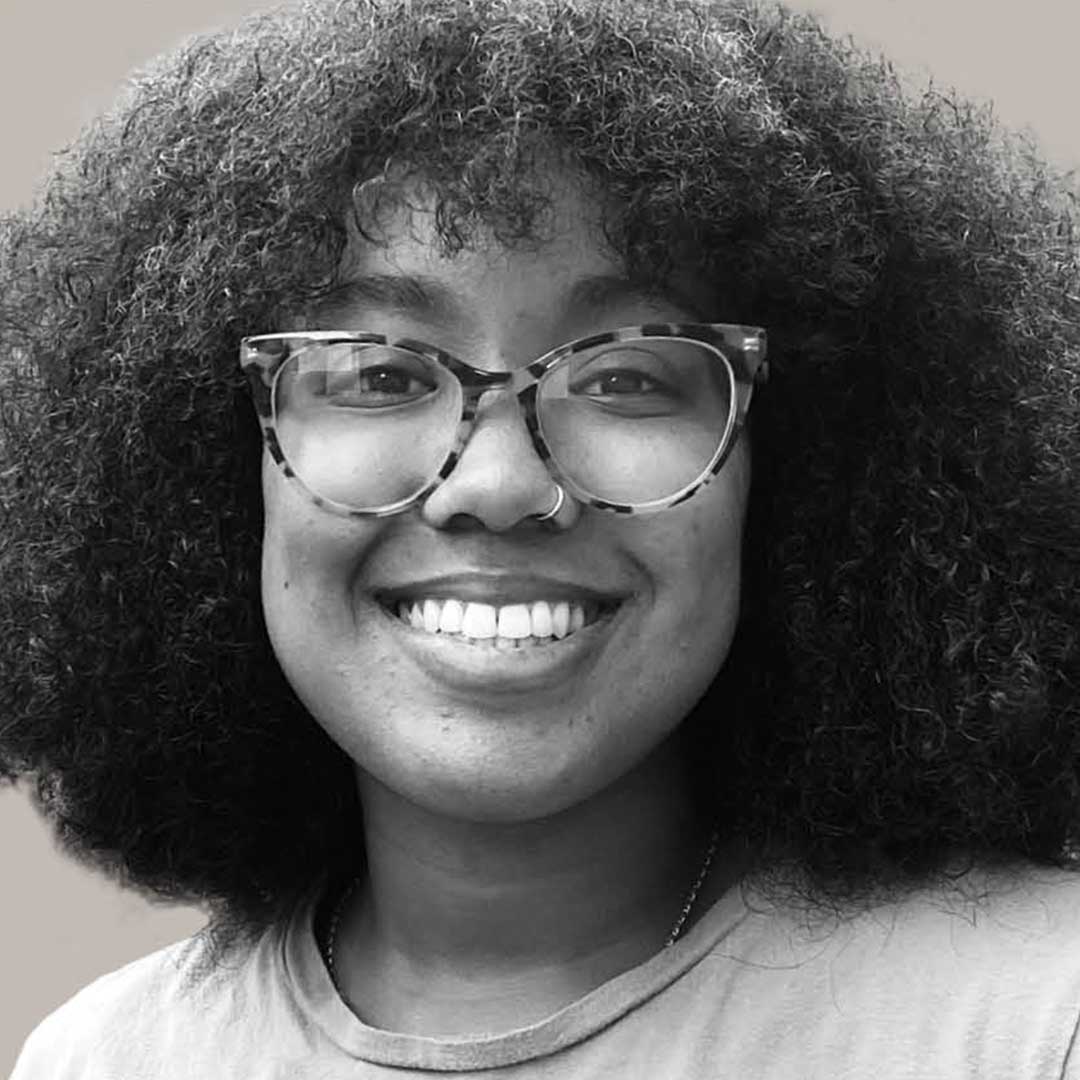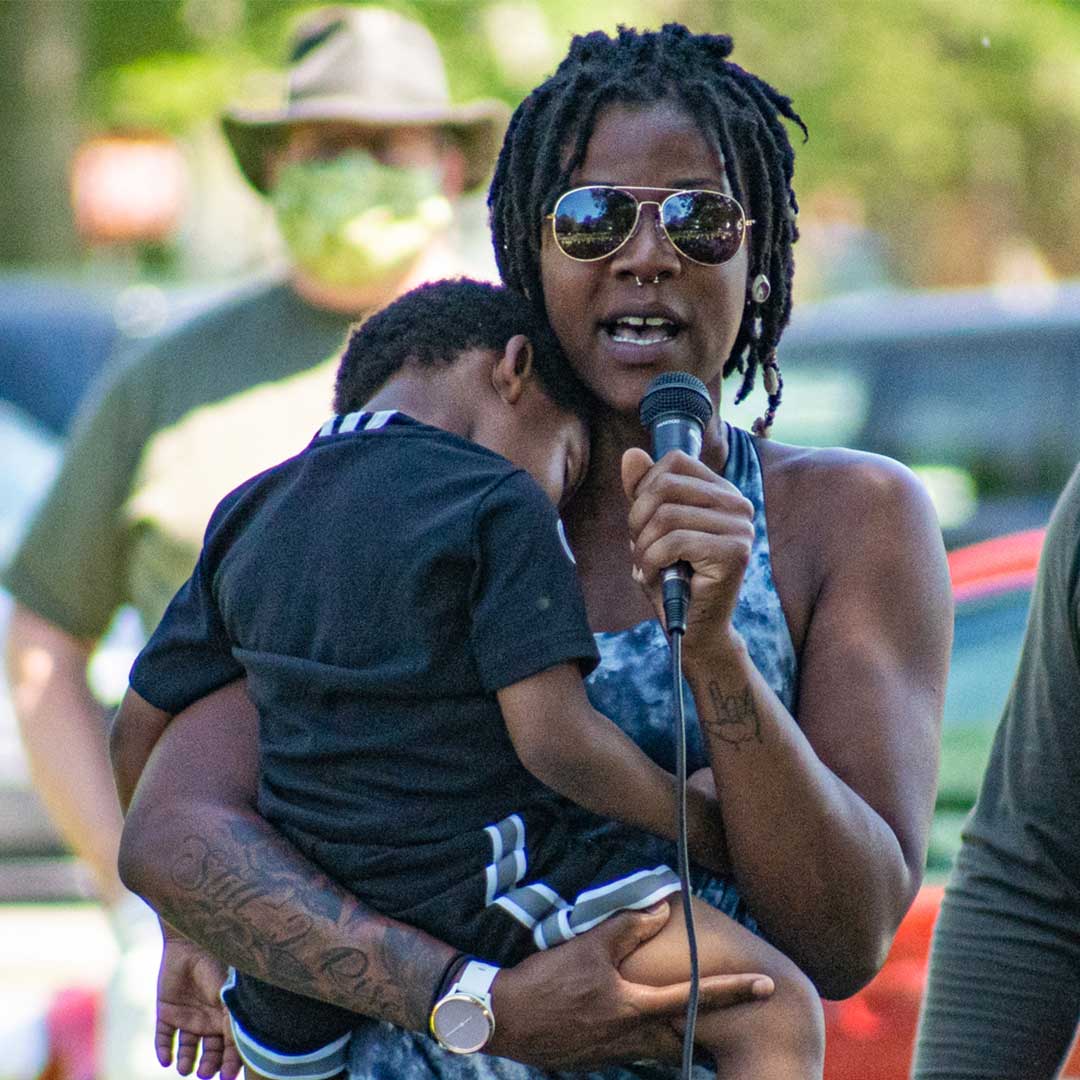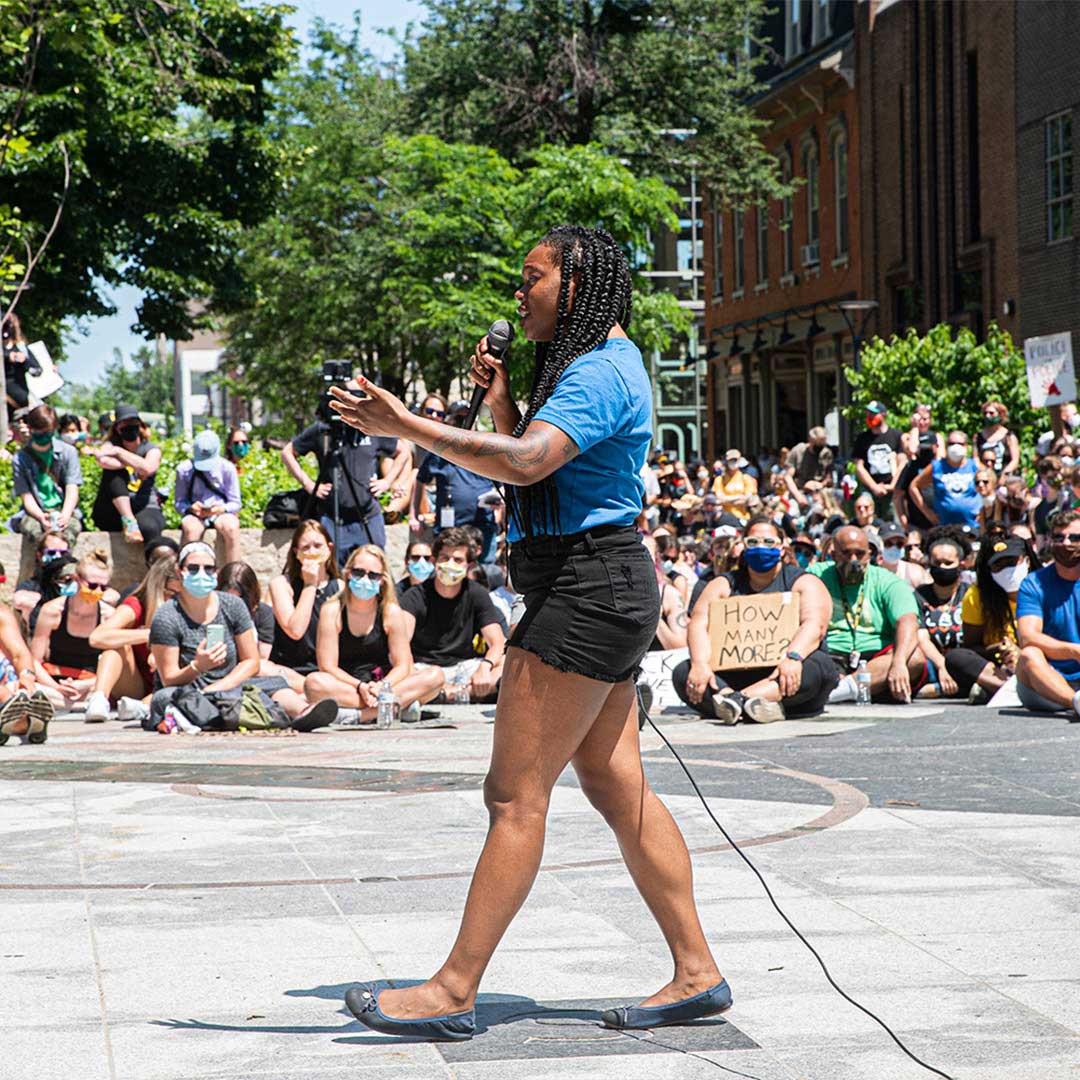IOWA Magazine | 09-11-2020
What Black Women Deserve From Iowa
By Ruth Kahssai
6 minute read
A student leader shares her vision for a more diverse and inclusive campus.

Like many first-generation prospective students, my journey to college was challenging. All I knew—aside from the basics learned from online searches—was that I wanted to go to a larger institution with an emphasis on research, I would require financial assistance, and I wanted to live in a campus community that was diverse and where I'd feel at home as a young Black woman.
My high school counselor saw that I had a few Big Ten institutions on my college list and suggested I apply to the University of Iowa for its affordability and the ease of application. At the time, I was hesitant. I ended up applying and after visiting campus decided to accept an admission offer, solely due to Iowa offering me the best financial aid package and its emphasis on interdisciplinary research.
However, that left out my third want: a diverse community. My peers, counselors, and teachers in high school emphasized that community could be found anywhere, and the financial aid package was too good to let go. My family and I ultimately decided that affordability was more important than comfort. However, little did I realize that my idea of comfort was based in my upbringing of a racially diverse community, which was vastly different than the community at Iowa.
Flash forward to move-in day, August 2017, and I am hit with the realization that my mother and I only saw a few Black people on campus. Within the first week, I noticed I was the only Black woman in many of my classes. As the semester went on, a deep, unconscious fear suddenly jolted itself to every moment I was on campus: I am not reflected at this university, so do I even belong here? In all honesty, what stopped me from transferring was seeing a Black woman administrator, Dr. Melissa Shivers, speak at an event midway through my first semester. She was the Black woman in leadership I saw myself in, and it gave me courage to finish my first year.
After my first semester, I quickly got involved to find community. I grew in my leadership skills through Campus Activities Board, where I started projects like the Inclusion Task Force to improve the organization for underrepresented students like myself. I started volunteering at the Rape Victim Advocacy Program, which helped me realize my passion for the intersection of racial justice and public health. I had the honor of being a resident assistant to 34 talented first-year students in the Political Matters Living Learning Community that encourages civic engagement and community involvement. Within my three years at Iowa, I've been able to do research, travel abroad, intern, and more, and for that I am forever grateful.
I now serve as the director of justice and equity in undergraduate student government, where I collaborate and connect with underrepresented students, staff, and faculty to advocate for our needs. This summer, I reached out to Dr. Maria Bruno, the UI executive director of belonging & inclusion and another woman of color on campus, to think about how we can connect Black people virtually to create space for open and brave conversation, to listen and share in community as we process national events, and provide a platform to hold each other up. Called the Healing Space, this summer series allowed me and other students, staff, and faculty to build collective community to heal.
I look back on my senior year of high school and how I applied to Iowa on a whim. Now I'm in my final year of undergrad, working toward bachelor's degrees in social justice and social work, with a minor in psychology, and beginning my graduate school application process. The support I've received from individual students, staff, and faculty during this tumultuous journey is one of kindest loves I've ever felt. My peers have been my community and support system, while staff and faculty taught me that my ability to succeed and learn is vast, and that my imposter's syndrome—or feeling of inadequacy in an unfamiliar environment—was not rooted in truth. I am deeply appreciative for every person who gave me opportunities, personally and professionally, to grow.
I also recognize this support came from individuals rather than from the institution as a whole. While I'm grateful for the experiences and relationships I've made while at Iowa, I also know the harm I've experienced due to racism, sexism, and classism is something I hope to not experience again during graduate school. I've realized that my comfort as a Black woman is not worth exchanging for other benefits. My three years have been rooted in creating a better campus for other Black women like myself, and unfortunately that has at times come at the cost of my overall well-being, academic pursuits, and mental health. My hope is that when I transition to my next institution, I am able to focus on just being a student rather than a problem solver, counselor, educator, advocate, consultant, and more.
The UI Fall 2019 Undergraduate Profile states that only 3% of the student population identifies as Black/African American. For eight months, there were no apparent women of color within senior-level university leadership and the President's Cabinet until Dr. Liz Tovar assumed the long-vacant position of interim associate vice president for diversity, equity, and inclusion in August—a direct result of constituents pressuring the institution. The UI 2019-2020 Digest Data reports that out of the 1,248 tenured faculty on our campus, only 24 identify as Black or African American, 48 as Hispanic/ Latinx, and two as American Indian or Alaska Native. Serving more than 30,000 students, University Counseling Services only has one Black therapist and no Latinx therapists.
Black students, Indigenous students, and students of color deserve to see ourselves reflected in the classroom. We deserve to see our Black, Indigenous, and staff and faculty of color treated with the same appreciation we give them for cultivating community for us. We deserve to walk on campus and feel comfortable and confident in our ability to thrive. Black women deserve to feel comfortable in all spaces at the UI, beyond the Afro House, the Center for Diversity and Enrichment, and the Women's Resource and Action Center.
Black students, in particular Black women, at the university are tasked with being students and living in a predominantly white community, while also needing to consistently come up with solutions to the university's challenges with diversity, equity, and inclusion. When I submit my last final in May 2021, I hope to feel confident that UI leadership fully commits to prioritizing the experience, success, and well-being of Black women like myself. The UI can show this commitment by holding individuals accountable who don't demonstrate the university's values of diversity, equity, inclusion, and safety and by allocating funds to provide direct services to Black women.

Ruth Kahssai is director of justice and equity for the UI Undergraduate Student Government and served last academic year as a student member of the Committee on Diversity for the Office of the President, as well as on numerous committees across the institution. She is a senior at Iowa from the Chicago suburbs who is majoring in social justice and social work with a psychology minor.
Join our email list
Get the latest news and information for alumni, fans, and friends of the University of Iowa.
Join our email list
Get the latest news and information for alumni, fans, and friends of the University of Iowa.



